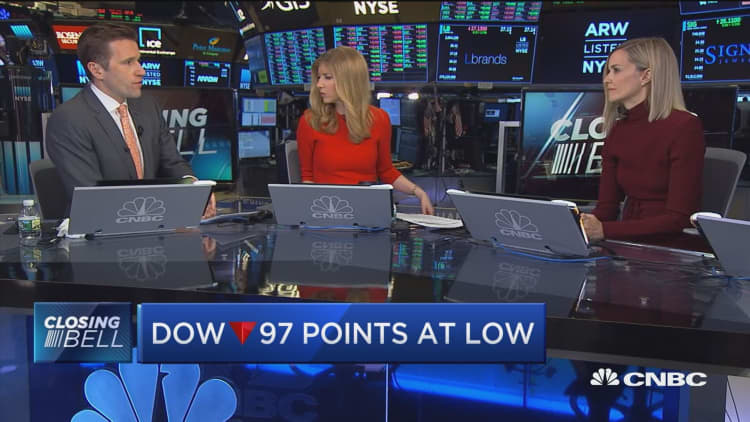
The odds of another government shutdown are "quite low," Libby Cantrill, the head of public policy at Pimco, told CNBC on Monday.
Talks to avoid the partial shutdown have stalled, with members of Congress unable to find common ground on border security. The deadline to reach a deal is end of day Friday.
"If you are a member of Congress, you are going to try to extract everything you can from the opposite party; however, you realize that the political cost and the economic cost are simply just too high," Cantrill told CNBC's "Closing Bell" on Monday.
The last shutdown in December and January, which lasted 35 days and was the longest in history, cost the economy $11 billion, according to the nonpartisan Congressional Budget Office. The sticking point was President Donald Trump's demand for $5.7 billion to construct his border wall along the U.S.-Mexico border. The president has appeared to back off that demand but is still asking for physical barriers on the border.
Congressional Democrats have offered $1.3 billion to $2 billion for those physical barriers, according to a Democratic source. In return, they want to cap the number of detention beds that Immigration and Customs Enforcement uses for interior enforcement at 16,500. Currently there are about 20,700 beds. Republicans, however, have rejected that idea.
"We're not in a good place," the Democratic source told CNBC. Senate Appropriations Committee Chairman Richard Shelby, R-Ala.; House Appropriations Committee Chairman Nita Lowey, D-N.Y.; Sen. Patrick Leahy, D-Vt., and Rep. Kay Granger, R-Texas, were all expected to meet on Monday afternoon to continue talks.
Cantrill said while she expects Congress to find a resolution, the big question is what Trump will do and whether he will sign any deal into law.
She said the president may actually declare a national emergency to get funds for the wall without congressional approval, which he has threatened to do.
"It would allow him to declare victory on that singular issue, which is, of course, very important for him and for his base," she said. "At the same time, he would allow the government to stay open."
As for how the markets would react to a shutdown, Cantrill said while it isn't necessarily positive for risk assets, it isn't much of a negative either.
However, it could have implications down the road. "The markets will start extrapolating what does a government shutdown this time around mean for things like the debt ceiling, mean for things like the fiscal cliff," she pointed out. "Those actually could have meaningful impacts both on markets and the economy."
— CNBC's Ylan Mui and Jacob Pramuk contributed to this report.


